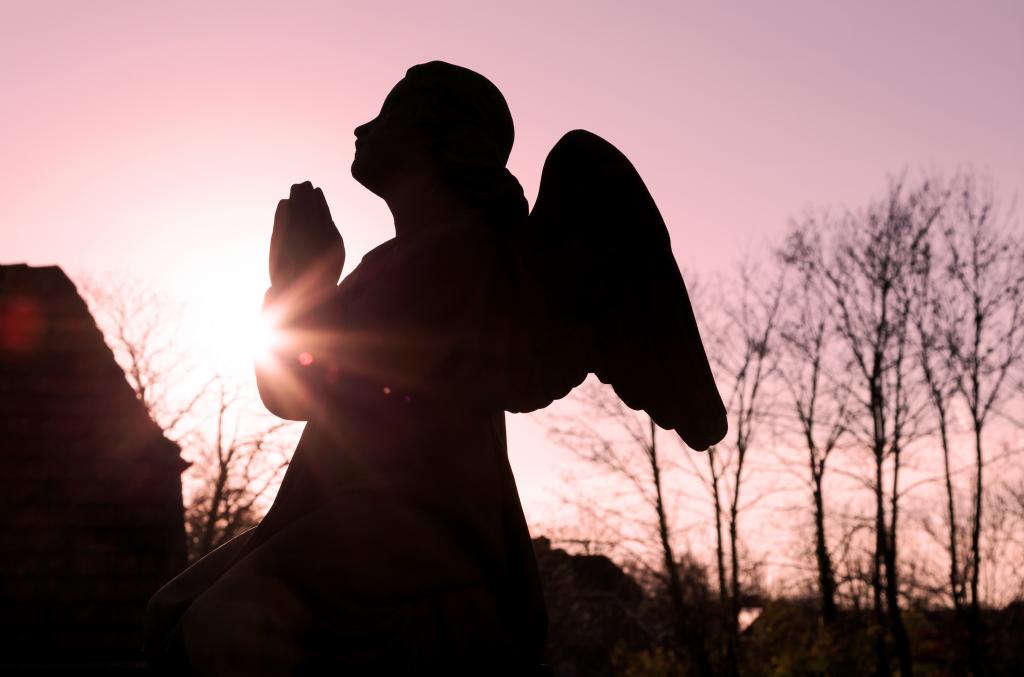I have not seen much death in my life. A few dead bodies in Afghanistan and a few older friends and relatives days or hours before they passed. Still, one thing I know in spite of never having been an EMT or hospital chaplain is that there are good deaths and there are bad deaths. Death has a profound quality to it, assuming one has had the time to observe it. I have been in the presence of a few people who have died, or were dying, well. It is truly a glorious thing. On the other hand, I have seen some who have died badly, and this must be the scariest thing of all.
To witness someone die in peace is the most peaceful experience for the living imaginable. This is most true for those who have seen their loved ones die in the presence and love of Christ. We know where and to whom they have gone, and we are comforted. In fact, we are encouraged.
Then there are those bad deaths, the ugly ones. They can take on two forms: those that die angry or those that die afraid. Both are horrible and can have different sources. Anger can be out of regret or a spirit of rebellion. Fear can be for oneself or possibly for those left behind (the latter maybe not as painful to see as the former). Yet so rarely do we stop to think about how we will die, our thoughts so consumed with the when we will die. For the follower of Christ, however, the question of when is nearly irrelevant (not completely, but nearly). The question of how, however, is paramount.
Living the Life of Grievance
There has been much to say about “grievance” in the last few decades in America. So much so that a few plucky scholars found it necessary to make some very salient critiques of the faux scholarship that is much of today’s humanities departments. But, we see it in the streets as well. It is not just the obvious players, Black Lives Matter or Antifa, who have embodied the disposition of grievance as a political tactic. It is in us all, to some degree or another. It is one reason why Marxist political tactics work so well. Because deep down we are all upset about something.
But grievance is not the same as grief, although its now obsolete meaning is “suffering or distress.” Although grievance once entailed grief, now it is used almost exclusively to denote the act of making a complaint. One issues a grievance, but experiences grief.
Grief is the emotion we rightly experience over true loss–the loss of some goodness in the world. However, grief and hope can go hand in hand, as the Psalmist expresses:
Deep calls to deep in the roar
of Your waterfalls;
all Your breakers and Your billows
have swept over me.The LORD will send His faithful love
by day;
His song will be with me
in the night–
a prayer to the God of my life.Psalm 42:7-8
Within the context of God’s providence, deep waters and crashing waves cannot drown out or pound into submission the hopeful heart. Tragedy is not tragic if God is in control.
Grievance, on the other hand, finds no hope in a world without God. As such, the one who expresses grievance takes offense at anything that comes against him or her. The world is only an enemy, if God is not over it. If God is there, then offenses may come as they will. In fact we would expect offenses to come and at times even embrace them for our own good. “Consider it a great joy!” the Lord’s brother tells us, when those fiery trials come.
But, if the world is only an enemy and offenses never a gift, i.e., an unwelcome yet important part of God’s plan, then the man of grievance can only fight the world. For enemies are meant to be fought. That itself is by God’s own design and it is something that God Himself does (Exodus 15:3). But to fight out of grievance is to fight often against an enemy that on the one hand can be too abstract to truly identify, e.g. systemic racism, or on the other who looks very much like oneself, e.g., one’s fellow man. To live a life of grievance will either leave us beating at the wind or beating on one another–often both.
Grievance and the Last Enemy
Finally, when it comes time to fight our last enemy, our own death, we fight an enemy we cannot subdue no matter how hard we try. Then the one who has only known grievance will ultimately despair. It is said that Stalin raised his fist to the air in his final moments. His grievance with heaven still not finished for the once hopeful priest. To live a life of grievance, without repentance and without forgiveness, will end in a frightful death.
But my example was extreme. Stalin, after all, was evil. Instead conjure up a man or woman who has done nothing but grumble to the moment of death. Even if that grumbling, that voicing of grievances, has never taken the form of a Molotov cocktail or a campus protest or a communist revolution, does it really matter at the time the final enemy is to be faced? Even if the grievances have only been whispered, constantly whispered, under one’s breath, can this death be a pleasant one?
C.S. Lewis imagines the perpetuation of our grumbling into the next life. In The Great Divorce chapter 9, we meet a chatterbox woman who has done nothing but gossip and complain all her days. She grumbles for a living, but worse, she is becoming what she does. An ontological transformation is taking place as she becomes her very disposition and habits. MacDonald explains this transformation to the narrator:
“That is what she once was. That is maybe what she still is. If so, she certainly will be cured. But the whole question is whether she is now a grumbler.’
‘I should have thought there was no doubt about that!’
‘Aye, but ye misunderstand me. The question is whether she is a grumbler, or only a grumble. If there is a real woman—even the least trace of one—still there inside the grumbling, it can be brought to life again. If there’s one wee spark under all those ashes, we’ll blow it till the whole pile is red and clear. But if there’s nothing but ashes we’ll not go on blowing them in our own eyes forever. They must be swept up.”
Excerpt From: C. S. Lewis. “The Great Divorce.” Apple Books.
Is it really that hard to think, especially considering the evidence for post-mortem existence, that we (our conscious selves) might not continue to exist immediately after our bodies have died, and that that conscious self will possess the same dispositions to its embodied self? Many have reported, like Stalin’s daughter, that to see the angry man die is truly a menacing sight. But why? Why would it not bring peace to the observer that the person is finally dead. Unless, the menacing is not really over because the menace still exists.
Dying Well: The Gift of Peace
I end with a story by one of our generations finest, and bravest, writers. For I have no story like this in my own repertoire (not yet at least). Even if I did, I would not be able to retell it with as much depth and clarity as Rod Dreher tells the story of his dying father. The story has to do with how Dante’s Comedia helped Dreher through a time of great spiritual struggle.
Dreher and his father had a respectful but distant relationship. He talks of his father’s resentment for a son that was very different than him, a son that loved books more than sports and who left the country for the urban (and public) square. The son, Rod, feels the struggle his entire life to please the father. Then the only other sibling, a sister, dies and the prodigal returns home. Shortly after the sister’s death the father grows ill.
Unless something changes before the father succumbs to this terminal disease, there could be a bad death, a menacing end. But, the son has been faithful in his walk with Christ and his prayers true. Dreher relates the end of his father’s life in a recent article. It is worth quoting at length:
In the spring of 2015, with death approaching, my father looked at me with tears in his eyes one morning, and said he was sorry for the way he had treated me. I did not see that coming. Of course I forgave him. I reflected later that had I known all the pain and suffering waiting for me in Louisiana, confronted by the fact of my forever exile from family, I never would have returned home. I never would have discovered Dante, and never would have gone through the agonizing pilgrimage that freed me from bondage to disordered love and restored my relationship to God the Father.
In late summer, my father entered home hospice care. I moved in to live with him in his bedroom. I read to him, prayed over him, rubbed lotion into his feet, and gave him the regular doses of morphine the doctor prescribed to ease his passage. For eight precious days, we dwelt in peace, father and son. And then, on the day he died, surrounded by family and friends, I held his hand as he breathed his last. It was golden.
Rod Dreher, “Grateful for Dante” in Touchstone Magazine (July/August 2021)
The resentment of the past lifted through repentance and the grievances of merely human offenses wiped away by forgiveness, the father’s death gives the son peace, “I marveled at how right everything felt. All my adult life I had dreaded this day….But the day came, and it was…beautiful. Holy even.” (Dreher, “Grateful for Dante,” 26).
A beautiful death goes hand-in-hand with Christ’s promise of eternal life. As Christians let us not worry about the when of death, let us pray about the how of death. And let us bury our grievance, nay let us burn them up! And let us do it today, this very moment. For we do not know the day nor the hour.















